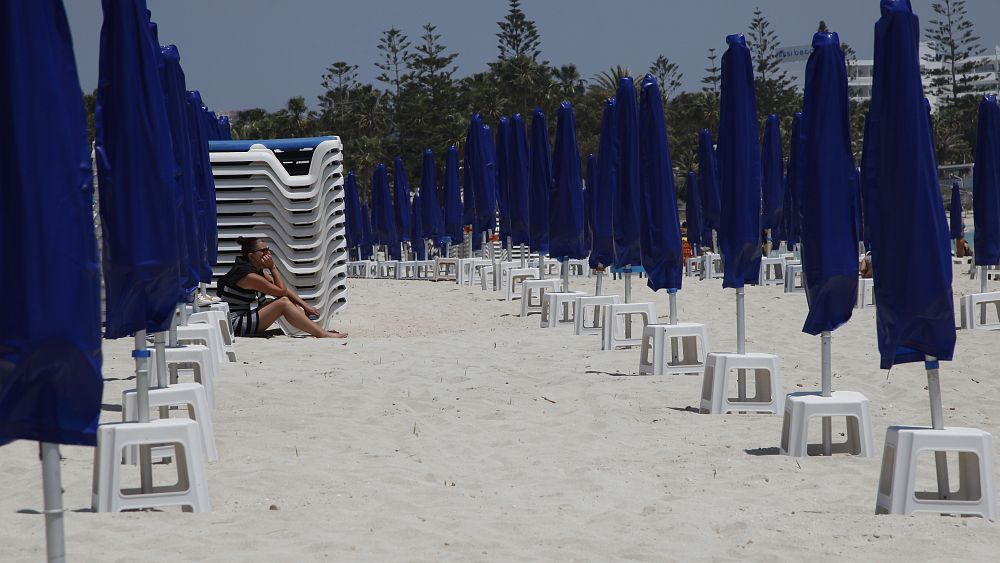
While many countries are now easing their COVID-19 blockades, Europeans are resurfacing with the same two questions: can we go on vacation this summer? And if so, where?
However, the fear among governments will be that the increased movement of people will cause a new wave of infections.
But a Spanish study believes it has found a solution.
He wants all of Europe to map its worst (red areas) and least affected areas (green areas) affected by COVID-19 and that people travel accordingly.
"Green spaces" from different European countries
NAIL policy proposal by Esade Business School in Madrid wants to "bring green zoning to the level of the European Union".
"The idea is simple: allow the mobility of people between the" green spaces "of different European countries through a network of regions certified by the European institutions", says the study.
The system would, for example, allow you to travel between southern Italy and southern France, or between Greece and Switzerland: every time you come from a European green space, you will be allowed to travel to another.
National green spaces "are very good candidates for obtaining the EU green label", explained Euronews Marta Rodríguez Martínez, researcher Miquel Oliu Barton, co-author of the study .
To get the green label, said Oliu Barton, a region would have to prove that the virus is under control: that hospitals in the region are not saturated, that the growth rate of new infections is low, and that tests are widely available.
The researcher suggested that highway exits could remain closed in the red zones.
"The same goes for the train: coming from green spaces, you should not stop in" red "stations," he added. "And at airports, it's relatively easy to control where someone is coming from and where they want to go."
Another measure proposed by the study is that travelers present a residence permit as proof that they come from a green space.
"Save the summer tourist season"
Even though the COVID-19 epidemic is decreasing in some countries, the prospect of a normal summer vacation this year seems uncertain to many.
In several EU countries, borders are closed, allowing people to cross only if they have an important reason, travel restrictions have been introduced and international travel is discouraged.
This year will not be good for the global travel industry, which expects losses of between 20-30%, according to estimates from the World Tourism Organization (UNWTO).
"Such travel restrictions will do more damage to the already weakened economies of southern European countries, such as Spain and Italy, as they depend more on tourism than the northern countries", according to the study.
But as countries begin to reopen their borders, this policy may be the way to "save the summer tourist season in southern Europe", according to the study’s authors:
"If properly communicated and with sufficient guarantees, this proposal could save the summer tourist season in southern Europe, thereby mitigating the enormous economic costs that the closure of international tourism could entail for these countries."
Oliu Barton said the proposal was sent to the bloc on May 5 and that "so far it has been greatly appreciated". "If adopted, the first European green spaces could arrive very soon, starting in June," he added.
On Wednesday, the European Commission presented its draft Progressive and coordinated lifting of travel restrictions and border controls across the EU. This offers an approach that "he begins by lifting the restrictions between zones or Member States with sufficiently similar epidemiological situations".
This would imply that residents of countries with similar levels of infection should be able to travel more freely to and from these countries.
But European Commissioner for Home Affairs Ylva Johansson insisted that member states should not discriminate between EU passports.
"If a border is open, all EU citizens can cross this border," he told Euronews.
The Baltic States, Lithuania, Estonia and Latvia are already underway to reopen their borders to each other from Friday (May 15) having so far avoided the worst of the coronavirus pandemic.
France has said it will keep the borders closed until "at least June 15" and will reassess closer to the date.
Austria has declared that its border with Germany will fully reopen on June 15. Chancellor Sebastian Kurz said Austria is aiming for similar deals with Switzerland, Liechtenstein and their eastern neighbors "" as long as infection figures allow "".
Learn more about Austria's plans by watching Nial O & # 39; Reilly's report in the video player above.



